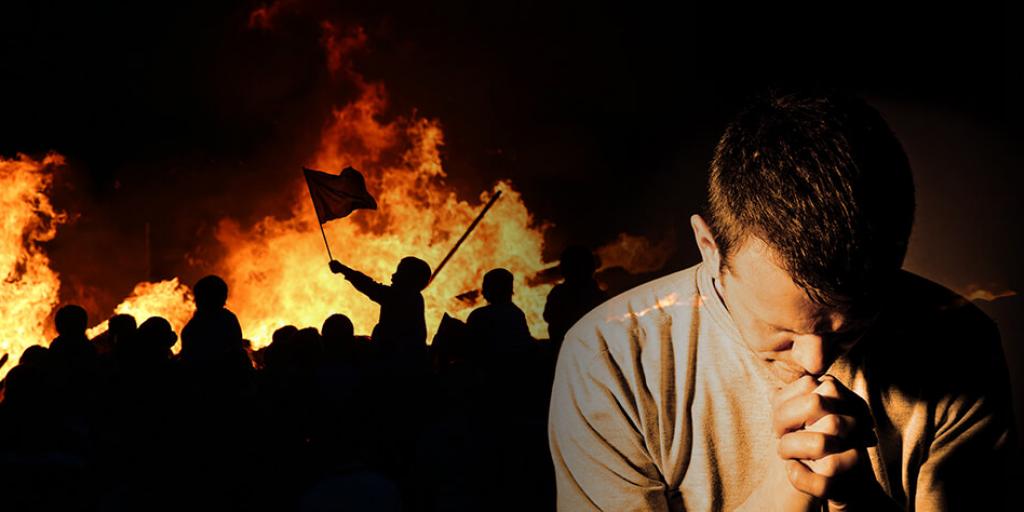
Pray for Those in Authority
The nations of the world keep changing their leaders. People hope things will be better under new leadership. What is a Christian’s responsibility toward leaders of their nation?
Rational people do not expect leaders to satisfy everyone or solve all problems, but they hope their leaders will bring resolutions to the most important issues. We all desire to have relative peace and safety through respectful enforcement of laws. We hope for economic prosperity so we and our families will have food, clothing and shelter.
The leaders of today’s nations face numerous and intractable problems. Perhaps we are better able to cope with famines today than previously because of modern transportation and water purification, distribution, and irrigation. Perhaps pestilences can be better fought with modern medicines and vaccines. But, for conflicts and wars, technology seems only to have made possible an unthinkable level of destruction and annihilation.
For all of the increases in knowledge and improvements of technology, people are still divided by race, ethnicity, religion, culture, economic status, political ideology, and age-old hatreds. Rather than the world becoming more united, it seems that the divisions have grown and remain unsolved by science, technology, or law.
Leaders are either elected, assume power by right of succession (primogeniture), or obtain rule by force. Regardless of how authority is obtained, the problems facing every nation land on the desks of the authorities. Finding solutions is beyond their ability and power. If there was ever a time to pray for our leaders, it is today.
Those desiring to lead Christian lives find life increasingly difficult in many nations. A Christian lives in the world, but is not of the world, avoiding participation in anything that is contrary to God’s instructions. So what should a Christian do?
The Apostle Paul exhorted Christians to pray for the authorities. “Therefore I exhort first of all that supplications, prayers, intercessions, and giving of thanks (or “thanksgiving in the NRSV) be made for all men, for kings and all who are in authority, that we may lead a quiet and peaceable life in all godliness and reverence” (1 Timothy 2:1–2).
Paul uses four different words. First is “supplication,” which is a humble request, petition, and entreaty. The second, “prayer,” is earnestly speaking to God to make a request. “Intercessions” are prayers on behalf of another person, asking God to intervene for them. And “thanksgiving” is gratitude and an acknowledgment of appreciation for what God has done.
The focus of these prayers is for all mankind, but specifically for “kings and all who are in authority.” This is because their laws, decrees, actions, and legal judgments will have a greater impact on one who strives to follow Jesus Christ.
There are numerous examples in history, as well as in recent times, where individuals, businesses, and churches have been subjected by authorities to things against their moral conscience and beliefs. Christians are to be law abiding and “…subject to rulers and authorities, to obey, to be ready for every good work, to speak evil of no one, to be peaceable, gentle, showing all humility to all men” (Titus 3:1–2). But, when there is a conflict between mankind’s rule and God’s rule, we should do as the Apostle Peter told the high priest and the Sadducees during his trial. Peter simply said, “We ought to obey God rather than men” (Acts 5:29).
Obeying God over mankind’s laws may have consequences. But Christ said, “‘I will never leave you nor forsake you.’ So we may boldly say: ‘The Lord is my helper; I will not fear.
What can man do to me?’” (Hebrews 13:5–6).
Pray for those in authority. You may find the following helpful: Twelve Keys to Answered Prayer and “The Power of Prayer.” Order your free copy and subscription today, and don’t forget to check out “Judgment Day on the Nations.”
Stay up to date with our Weekly Digest Email!
Tomorrow's World ComMentary Podcast
Subscribe to Tomorrow's World Commentary podcasts on iTunes and Google Play!



